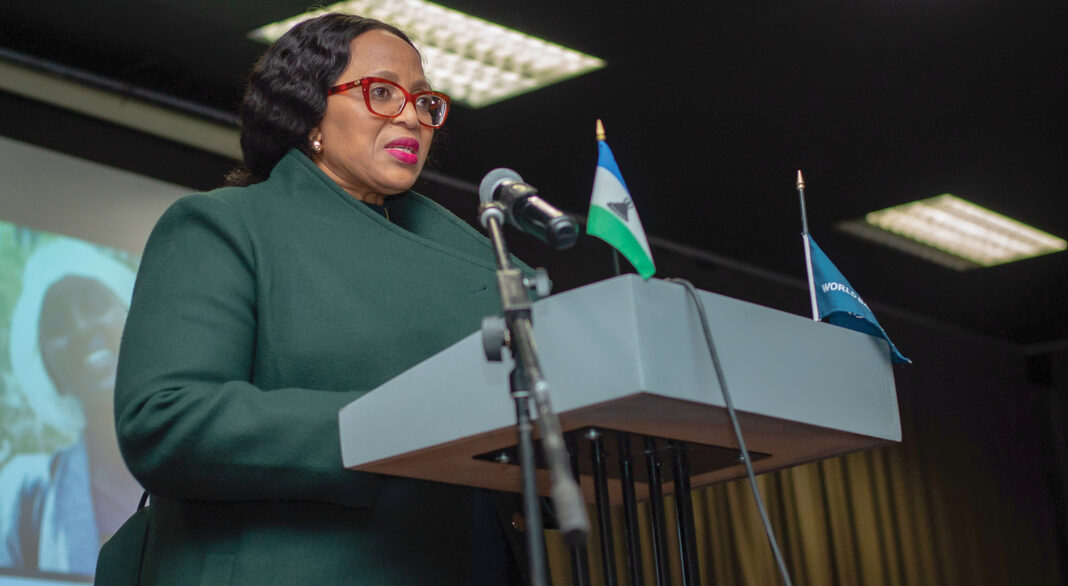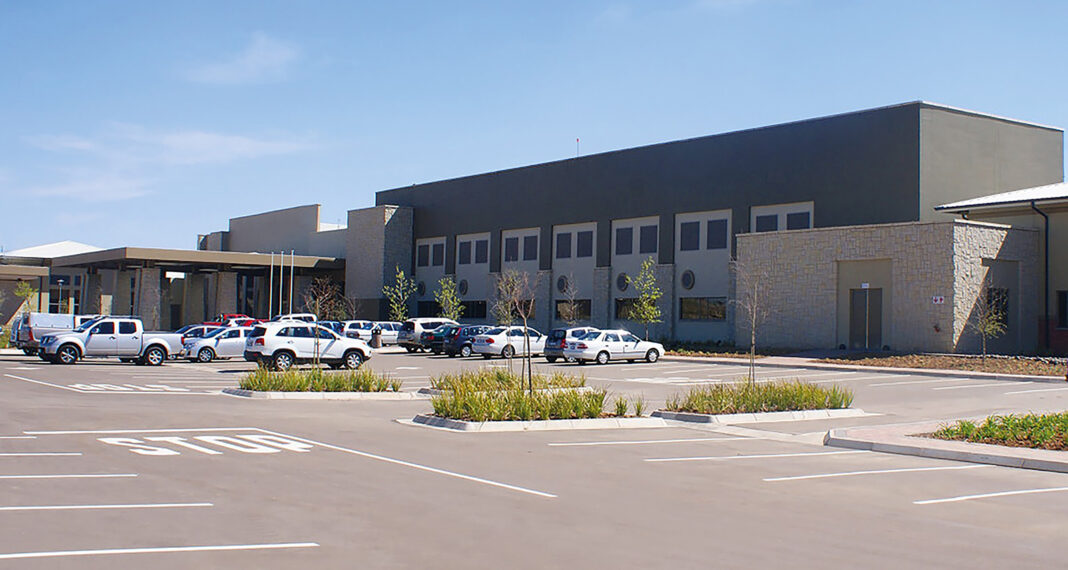By Neo Kolane
The minister of finance and development planning, Retṧelisitsoe Matlanyane, says significant progress has been achieved with the completion of 23 factory shells and associated infrastructure at Tikoe and Ha Belo.
Matlanyane said the infrastructure supports the government’s efforts to market Lesotho as a favourable investment destination in Southern Africa.
She told parliament last week that the Lesotho National Development Corporation (LNDC) has attracted new investments worth up to M696 million to utilise these facilities.
The investors have expressed interest in various sectors but mostly in textiles, clothing, stainless steel bars, electrical wiring accessories, leather seat covers, laundry services, fabric dying and garment manufacturing.
“This makes investment prospects over the medium term very bright. We are positive that these investments will be actualised, and considerable jobs will be created. To be precise, these investment opportunities are poised to register over 5,500 jobs.
“The textile and apparel sector is a cornerstone of Lesotho’s economy, accounting for one-third of gross domestic product and 43 percent exports in 2021, and employing over 40,000 people at its peak some years ago. Plans to further bolster employment include the creation of 8,000 to 10,000 new jobs by 2024-2025, facilitated by the completion of 16 factory shells in Ha Belo and enhancements to laundry facilities.
“Additionally, the sector’s growth initiatives, such as supporting Free on Board (FOB) operations, are expected to generate an additional 5,000 jobs through the establishment of two new factories in 2024,” Matlanyane noted.
However, the Bureau of Statistics paints a different picture, with its consumer price index released in September 2023 suggesting that the textile industry employed 29,000 people.
The minister, who said the trade sector is one of the identified priority sectors to promote economic growth, revealed the sector has been allocated M599.5 million for the 2024-2025 financial budget.
She indicated that limited capacity and access to affordable finance continue to be affecting Micro Small and Medium Enterprises (MSMEs) growth.
“To address this challenge, government is enhancing capacity and providing funding to targeted groups through empowerment programmes such as Lesotho Youth Acceleration Project, Competitiveness and Financial Inclusion Project and Lesotho Enterprises Assistance Programme.
“For Lesotho Youth Acceleration Project and over three-year period, the project aims to build capacity for 1,200 enterprises, with at least 150 MSMEs accessing project funds annually to upscale their businesses, consequently creating and sustaining jobs.
“Additionally, 50 MSMEs per year are earmarked for support in accessing LNDC/Post Bank Seed funding. The project targets the creation of 1,000 jobs annually.
“One of the main challenges facing private sector in Lesotho especially small businesses, is access to affordable and tailored finance,” she added.
She also disclosed that the Millennium Challenge Account Lesotho will establish the Lesotho Impact Investment Fund (LIIF), with a view to providing tailor-made funding instruments that respond to the needs of the private sector.
The fund would also provide an opportunity for Basotho and local corporates to co-invest into the LIIF to increase the pool of funds to support local private sector.
The government has allocated M71.6 million to implement policies and programmes that will improve the labour and employment sector.
According to Matlanyane, Lesotho is actively engaged in Bilateral Labour Migration Arrangements to diversify employment opportunities and promote skills development through agreements with countries such as Qatar, Seychelles, and Mauritius.
To this end, she said, there are efforts to support and strengthen the labour environment by enacting progressive labour legislation, such as the proposed Labour Bill 2023 and the Occupational Safety and Health Bill 2023.
The enactment further underscores Lesotho’s commitment on efficient social protection programmes, hence the vision to establish a National Social Security Scheme.
According to reports, the unemployment rate in Lesotho stands at 22.77 percent in 2024. The unemployed people in Lesotho are estimated at 230,600. Employment is estimated at 57.02 percent while the total labour force in Lesotho stands at around 1.01 million this year.








